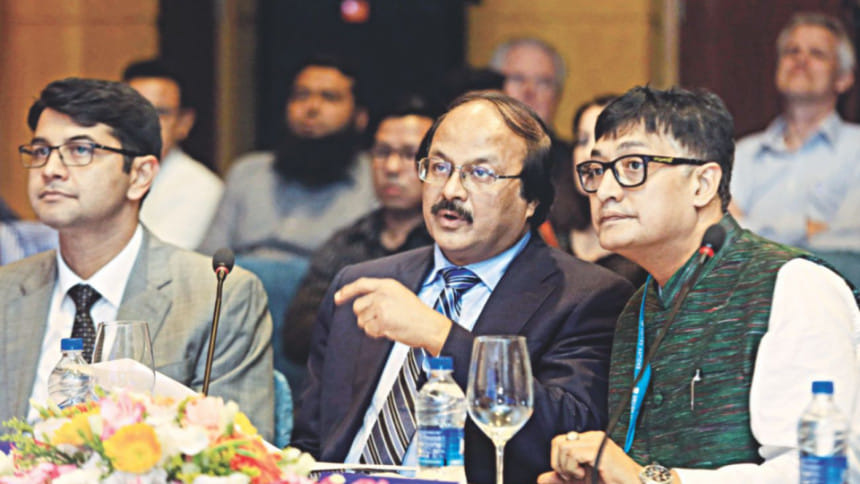Inclusive business models for safe water

How would you feel if you were limited to using 13 gallons of water per day that includes roughly a 90-second shower, eight glasses of drinking water, a few dish-washings, one cooked meal, two hand washings, two teeth brushings and one-toilet flush? Sounds bizarre? Surprisingly, the dwellers of Cape Town have been encountering this reality just after facing the prospect of their city running out of water.
The water crisis in Cape Town, South Africa began in 2015 which resulted in a severe water shortage in the region. The severity of the crisis reached such a level that the government of South Africa decided to announce 'Day Zero', which indicated a moment when the municipal water supply would largely be shut off if a particular lower limit of water storage is reached and people would be sent to communal water points to collect their daily allotment of 6.6 gallons of water. Though the day has not arrived yet, it still remains an ever-present threat and may happen anytime in 2019.
No doubt, the Cape Town water crisis highlights the significant threat to companies and serves as a warning to the vulnerable cities around the world.
Bangladesh is among the vulnerable zones that encounter safe water challenges not just in terms of quantity but obviously in quality. A study reveals that almost 97 percent of its population have access to water, but 40 percent have the privilege of getting safe water and proper sanitation which is a matter of major concern for achieving the targets of the Sustainable Development Goal 6 (SDG 6).
The other concern deals with the overconsumption of water by large industrial sectors such as the textile industry. Granted that water has a special economic utility and is a key input in the textile sector, but this particular industry consumes large quantities of water in the direct operations of supply chain, which eventually results in the huge depletion of the groundwater level particularly in Dhaka city.
Moreover, the unavailability of tariffs on groundwater extraction allows businesses and agricultural practices to extract water at a rapid pace with minimal or no recycling.
In the wake of such reality where 60 percent of the people is accessing unsafe drinking water, there is a huge untapped market potential for the private sector to play a key role in solving the question of safe and quality water access.
Drinkwell and Folia Water are two innovative social enterprises in Bangladesh which not only bring commercial approaches to their social initiatives but also reflect creativity in aligning their business with the SDG 6. Drinkwell uses the public-private partnership model to serve the purpose of providing water services to the urban population. The company has partnered with Dhaka Water Supply and Sewerage Authority to make Dhaka the first megacity to provide a legal access to safe water for all by establishing Water ATM systems.
Folia Water's value proposition involves the distribution of silver-infused filter papers that cost as low as Tk 30 and thus provide the opportunity to the low-income community to have filtered water within an affordable range.
Realising the need to facilitate the proliferation of inclusive business models such as Drinkwell and Folia Water, Pureit brand of Unilever Bangladesh and the Innovation Hub of the UNDP jointly hosted a roundtable in Dhaka on “SDG 6 Multi-sectoral Dialogue on Safe Water”.
Speaking at the roundtable, Kedar Lele, chief executive officer and managing director of Unilever Bangladesh, said only public private purpose-driven partnership can bring meaningful difference to establish an effective water governance.
Linda Germanis, the project manager of the Innovation Hub for Private Sector at the UNDP, emphasised the need to develop new business-to-business models to introduce water recycling, harvesting and safe drinking water into established businesses.
The roundtable applauded the initiatives of two startups -- Tetra and Shishir Water -- for the effort to address the problem of groundwater salinity in the coastal regions and serve clean drinking water to the unserved population at an affordable price respectively.
However, challenges lie in the fact that the new business model for water services receives less attention because of a lack of effective commercial and social marketing facilities. Effective new partnerships need to be forged to bring visibility and awareness around existing best practices and to give the tools for initiatives to plan, implement, and measure the impact and profitability of business models. One such existing partnership is UNDP's platform Business Call to Action, which provides services through the Innovation Hub.
The Cape Town's crisis clearly warns Dhaka of the imminent danger that the city is going to face if the misuses of water are not prevented. Experts believe that the increase of water price and the initiation of innovative technologies are of good help to cut the excessive water use. But it is unanimously agreed that mass awareness is a crucial element to save the city before getting our taps switched off permanently.
The writer is a contributor to The Daily Star.

 For all latest news, follow The Daily Star's Google News channel.
For all latest news, follow The Daily Star's Google News channel. 



Comments